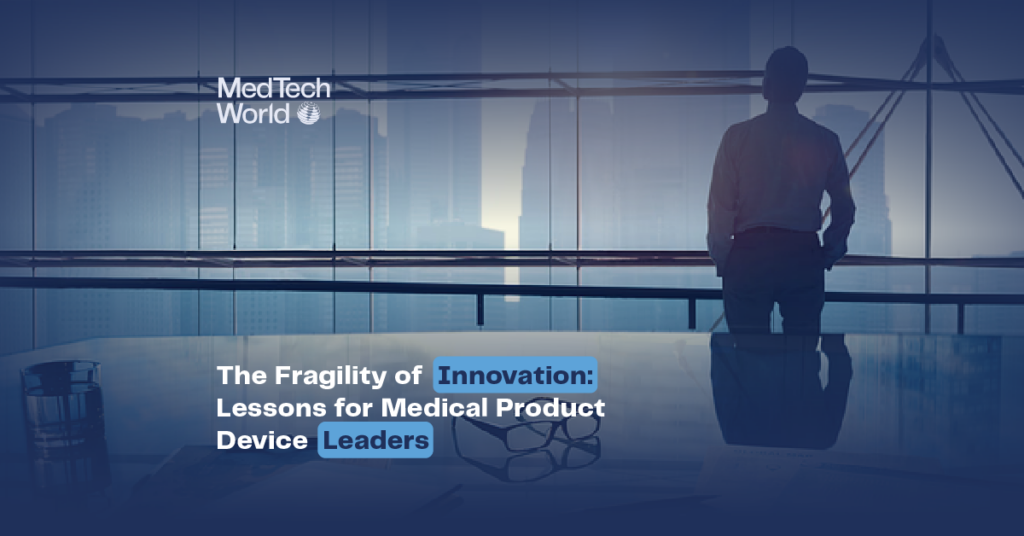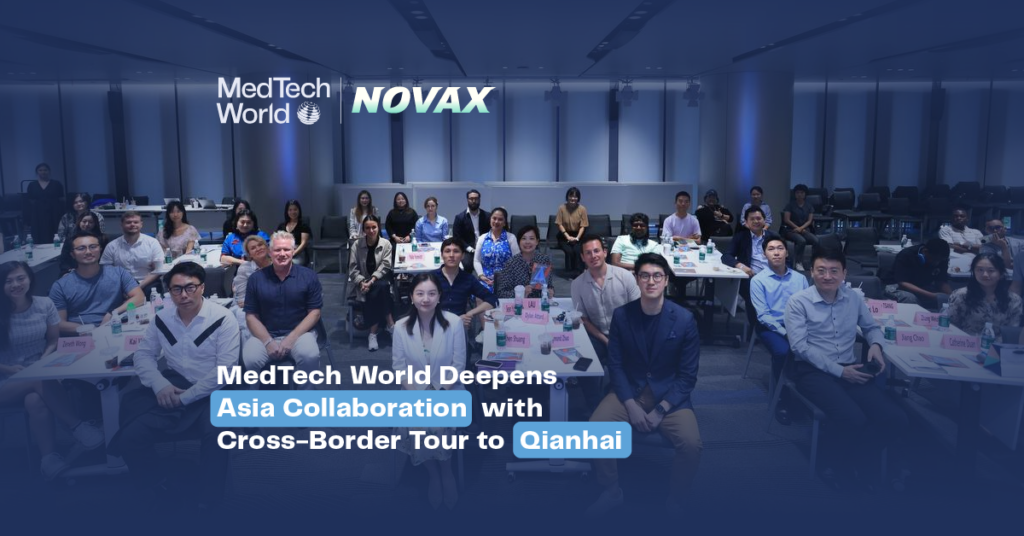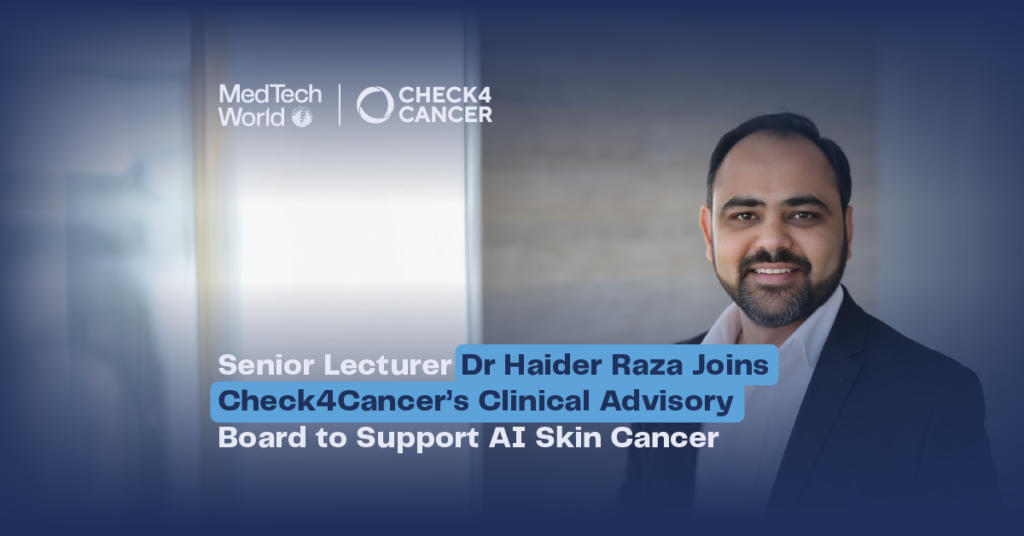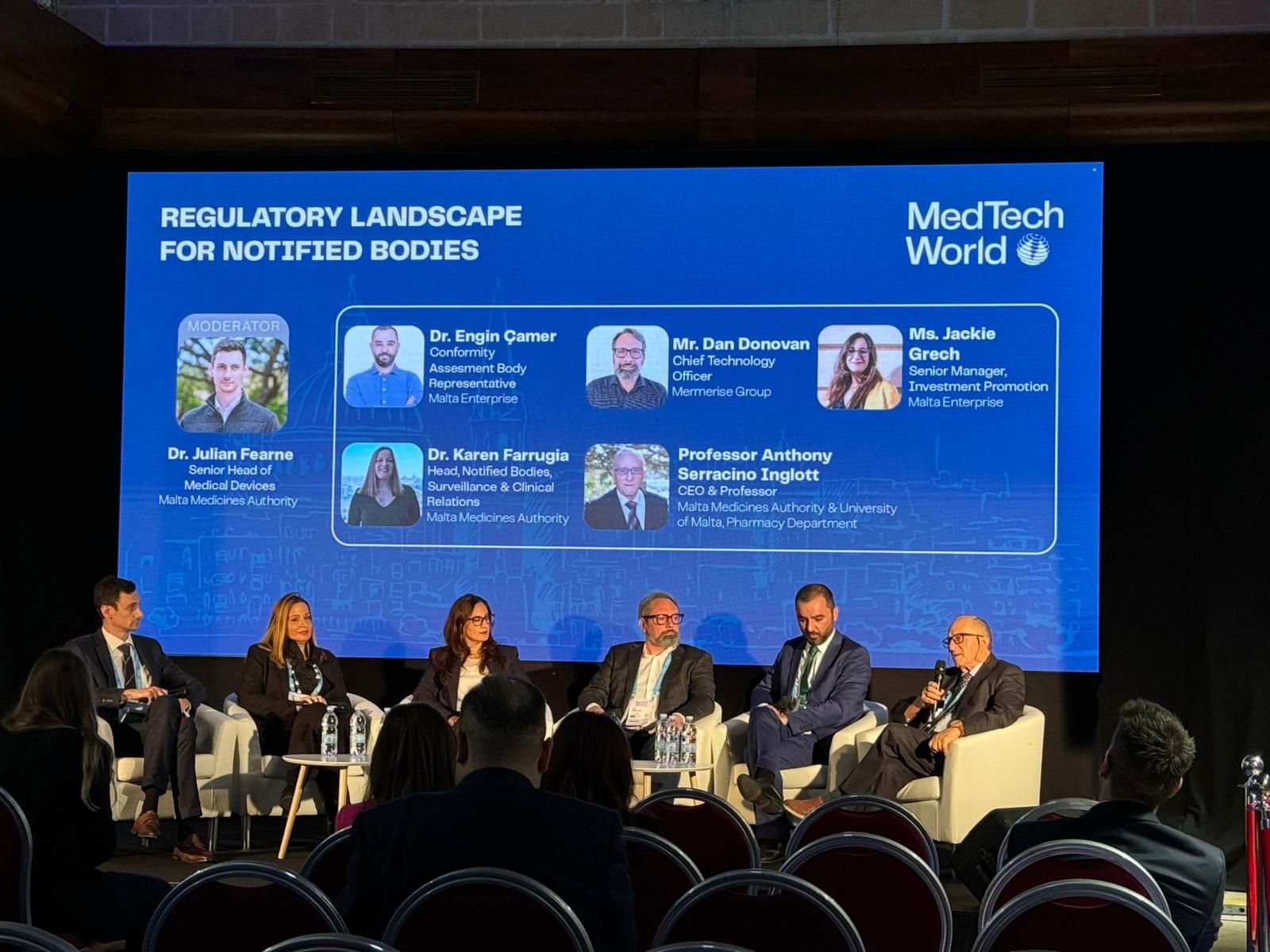
Wara Samar
4th December 2024
Changing Landscape of MedTech Regulation: What Notified Bodies Are Facing Now
At MedTech Malta 2024, a panel titled “Regulatory Landscape for Notified Bodies” brought together experts from various sectors of the MedTech industry to discuss the shifting dynamics of medical device regulations in Europe. The panel, moderated by Dr. Julian Fearne, Senior Head of Medical Devices at the Malta Medicines Authority, highlighted the evolving role of notified bodies in ensuring patient safety and compliance, addressing the challenges faced by industry professionals, and exploring the broader impact of regulatory changes.
Shifting Dynamics in Notified Bodies
Dr. Karen Farrugia, Head of Notified Bodies, Surveillance & Clinical Relations at the Malta Medicines Authority, set the stage by emphasizing the practical impact of regulatory changes on their daily operations. Since the implementation of the new regulations in August 2020, Malta Medicines Authority has had to adjust to a rapidly evolving landscape. The introduction of stricter regulations has meant that devices once classified as low-risk now require notified body involvement for the first time. “For example, with in vitro diagnostic medical devices, where 80-90% previously didn’t require a notified body, now 80% of them need one,” Dr. Farrugia explained, highlighting the substantial shift in regulatory oversight.
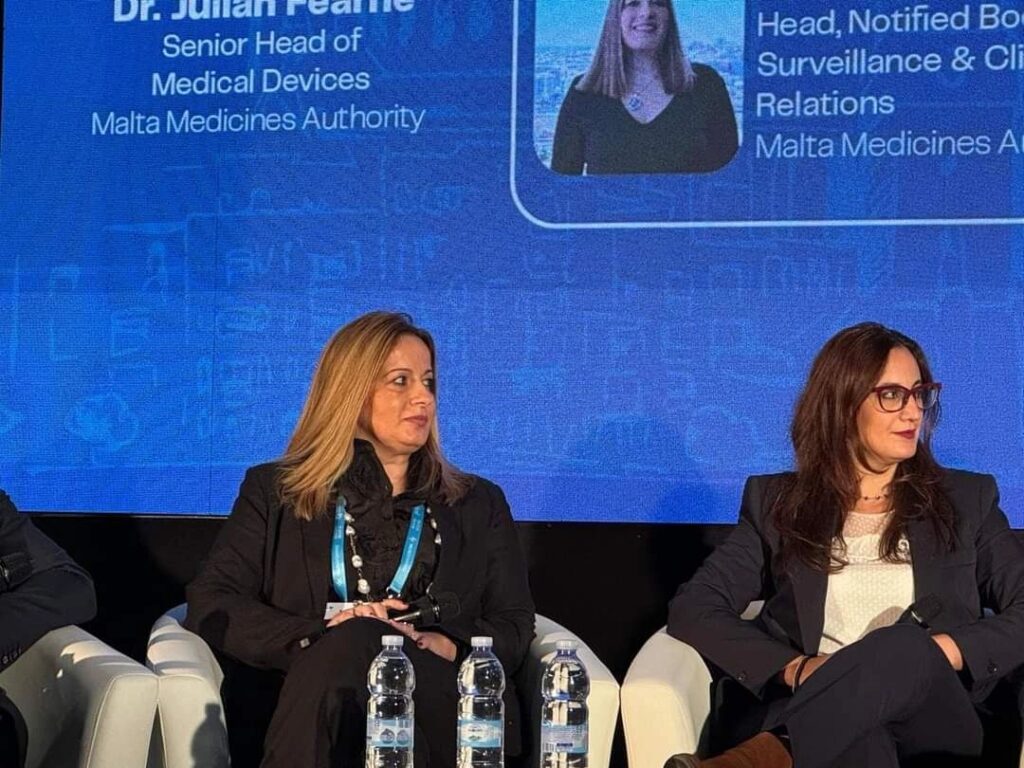
This change has placed significant pressure on both the authority and the notified bodies to scale their operations and increase their expertise to manage the growing volume of devices needing assessment. With an estimated 35,000 in vitro diagnostic medical devices now requiring notified body review, the burden on both regulatory bodies and the MedTech sector is immense.
Navigating Investment in a Complex Landscape
From the perspective of Malta Enterprise, represented by Ms. Jackie Grech, Senior Manager of Investment Promotion, the regulatory landscape presents both challenges and opportunities for attracting new companies to Malta. “We have to keep abreast of regulatory developments because many companies from outside Europe are entering this landscape for the first time,” said Ms. Grech. However, the stringent regulations, while complex, also serve as a selling point. The CE mark, a symbol of regulatory compliance in Europe, remains highly regarded globally, making it a valuable asset for companies seeking to expand internationally.
The increased demand for notified bodies has not gone unnoticed in the investment sector. Malta Enterprise is working closely with the Malta Medicines Authority to ensure that companies entering the European market are well-guided through the regulatory maze.
Technology and Global Regulatory Harmonization
The challenges of navigating global regulatory frameworks were further explored by Mr. Dan Donovan, Chief Technology Officer at Mesmerise Group. He shared insights into how global tech companies are adjusting to varying regulatory standards. “The regulatory landscape is ever-changing, and we are working hard to navigate those shifts,” Mr. Donovan explained. He pointed out that while Europe focuses on patient safety, other regions, such as the United States, may take a different approach. This disparity creates challenges for companies seeking to harmonize their regulatory efforts across borders.
In this context, Mr. Donovan stressed the importance of harmonizing regulations, not only for medical technologies but also for the broader technologies that influence them, such as AI and data privacy. “We need to think about how we apply regulations to emerging technologies, especially in areas like AI, which is becoming integral to medical devices,” he noted.
Capacity Building and Training for Notified Bodies
One of the significant challenges discussed by Dr. Engin Çamer, Conformity Assessment Body Representative at Malta Enterprise, was the need to rapidly scale up the workforce to meet the growing demands of the industry. “We have to increase our capacity,” Dr. Çamer said, reflecting on the difficulty of finding qualified professionals to fill positions in notified bodies. The process of expanding the pool of experts has proven time-consuming, with some positions taking over a year to fill.
To address these gaps, Malta Enterprise and other stakeholders are working closely to ensure that professionals are adequately trained to meet the demands of the new regulatory environment. Additionally, Dr. Çamer highlighted the importance of harmonizing the assessment process across different notified bodies, citing the completion of 150 hours of clinical harmonization meetings in recent years as an example of the ongoing efforts to standardize procedures.
The Role of Malta in Attracting Notified Bodies
Professor Anthony Serracino Inglott, CEO of the Malta Medicines Authority and Professor at the University of Malta, spoke about the strategic opportunity Malta has to become a hub for notified bodies. With Brexit moving many previously UK-based notified bodies to the EU, Malta has positioned itself as an ideal location for establishing new bodies, thanks to its strong regulatory framework and skilled workforce.
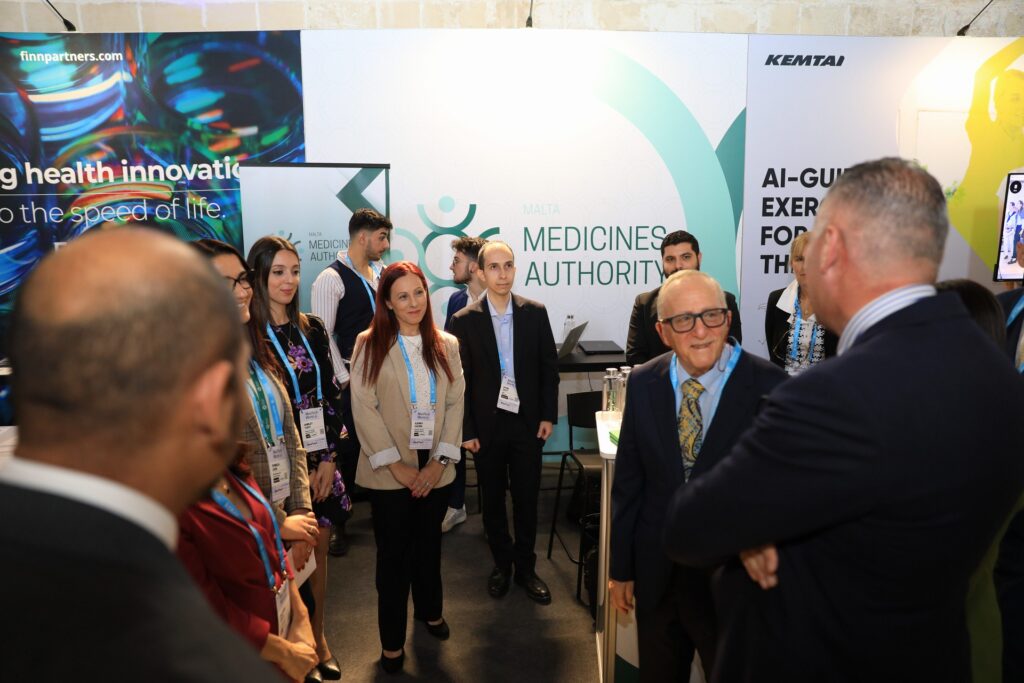
Professor Serracino Inglott stressed that, despite the rigorous requirements of the new regulations, Malta offers a unique environment for the growth of this sector. “This is a highly value-added industry, and Malta, as a smaller island state, can offer a clean and attractive environment for the establishment of notified bodies,” he said.
Balancing Innovation and Regulation
The panelists also discussed the delicate balance between fostering innovation and ensuring patient safety. Dr. Julian Fearne emphasized that Europe’s focus on patient safety is a core strength, but he also acknowledged the challenges that come with long timelines for regulatory approval. “We must compete with other global powers, and the lengthy process of certification can delay getting life-saving technologies to market,” he explained.
While some panelists cautioned that regulations should not stifle innovation, there was unanimous agreement that patient safety should remain the guiding principle. Dr. Farrugia noted that the introduction of more stringent regulations was ultimately aimed at improving the safety and efficacy of medical devices, especially as technologies evolve. “I don’t see these regulations as negative; they were developed to ensure better outcomes,” she said.
Looking Ahead
The discussion at MedTech Malta 2024 revealed that while the regulatory landscape for notified bodies in Europe presents significant challenges, it also offers opportunities for growth, innovation, and global collaboration. As the industry adapts to the evolving regulatory environment, Malta is positioning itself as a key player in the European MedTech sector, offering both expertise and a conducive environment for regulatory bodies to thrive. The need for harmonization, training, and investment in infrastructure remains critical to ensuring that Europe can maintain its leadership in medical device regulation while supporting innovation in the sector.
MedTech Malta 2025 Tickets are Out Now—Grab the Best Price Early!
Did you miss out on MedTech Malta 2024? Don’t worry—this is your chance to secure your spot for MedTech Malta 2025 at exclusive early rates. Be ahead of the game and take advantage of the best prices available before ticket prices increase. Act now—secure your tickets today and make sure you’re part of this must-attend event!



